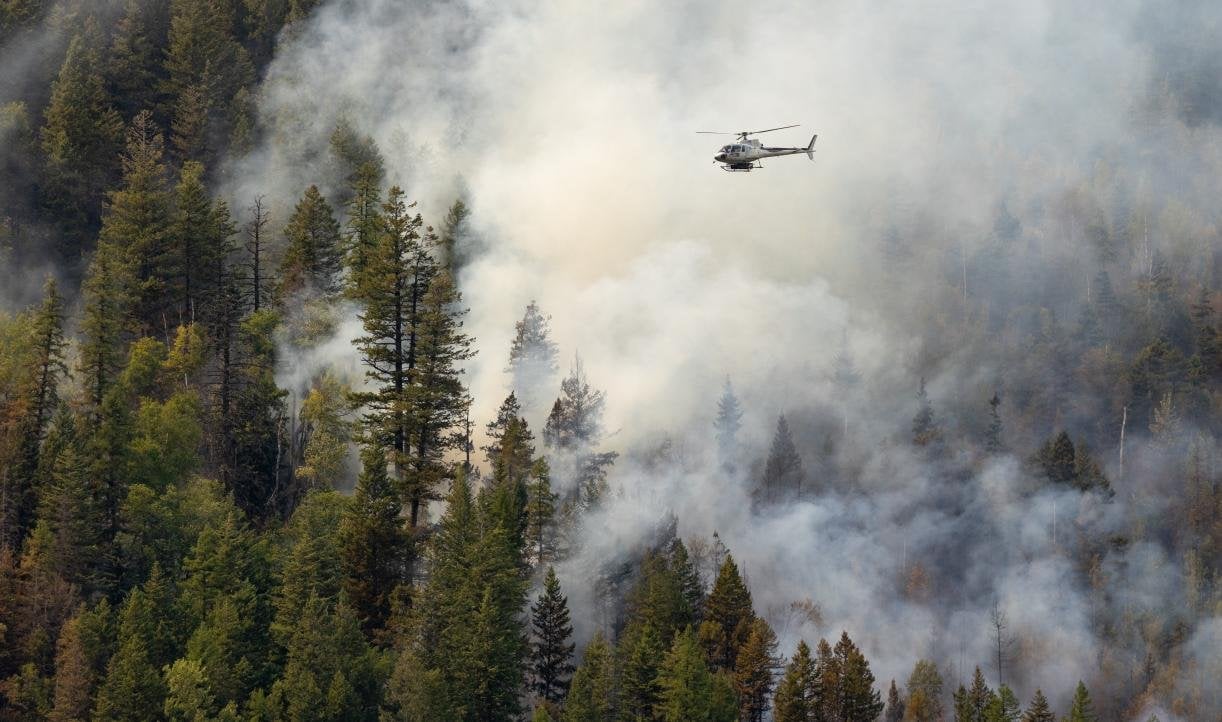
Breaking News: Wildfires’ Devastating Carbon Impact Revealed
Los Angeles, CA – August 15, 2023
In a shocking revelation, new research has uncovered the staggering carbon footprint of recent wildfires across the United States, highlighting the devastating impact of these disasters on the environment.
According to a study published in the journal Nature, the 2020 California wildfires alone released a staggering 87 million metric tons of carbon dioxide into the atmosphere, equivalent to the annual emissions of 18 million cars. The study, conducted by a team of scientists from the University of California, Berkeley, analyzed data from NASA and other sources to estimate the carbon emissions from these devastating fires.
Wildfires’ Carbon Footprint: The Numbers
- 2020 California wildfires: 87 million metric tons of CO2
- 2018 California wildfires: 54 million metric tons of CO2
- 2016 Tennessee wildfires: 13 million metric tons of CO2
- 2012 Colorado wildfires: 10 million metric tons of CO2
The Science Behind the Numbers
During a wildfire, vegetation is rapidly consumed, releasing stored carbon into the atmosphere as CO2. Additionally, the combustion of fossil fuels used in firefighting efforts and the destruction of infrastructure and property also contribute to the carbon footprint. Furthermore, the increased atmospheric temperature and changes in air circulation patterns can exacerbate the spread of wildfires, creating a vicious cycle of carbon emissions and climate change.
Consequences of Wildfires’ Carbon Impact
The devastating carbon impact of wildfires has far-reaching consequences, including:
- Accelerated climate change: The release of massive amounts of CO2 into the atmosphere contributes to the enhancement of the greenhouse effect, leading to global temperature increases and more frequent extreme weather events.
- Air pollution: Wildfires release harmful pollutants, such as particulate matter, nitrogen oxides, and volatile organic compounds, into the air, posing significant health risks to nearby communities.
- Ecosystem disruption: The destruction of habitats and ecosystems can have long-lasting effects on local biodiversity and the resilience of ecosystems.
What Can We Do?
As the global community grapples with the unprecedented threat of climate change, it is essential to recognize the critical role that wildfires play in exacerbating the problem. To mitigate the carbon impact of wildfires, experts recommend:
- Forest management: Implementing sustainable forest management practices, such as prescribed burns and forest thinning, can reduce the risk of catastrophic wildfires.
- Fire suppression: Developing more effective firefighting strategies and technologies can minimize the use of fossil fuels and reduce the carbon footprint of firefighting efforts.
- Climate change adaptation: Implementing climate-resilient infrastructure and developing early warning systems can help communities prepare for and respond to wildfires.
Stay Informed
For the latest updates on wildfires and their carbon impact, follow us on social media and sign up for our newsletter.
SEO Tags:
Wildfires, carbon impact, climate change, global warming, environmental disaster, air pollution, ecosystem disruption, forest management, firefighting, carbon footprint, greenhouse gases, NASA, University of California, Berkeley, research, science, breaking news, environmental news, climate news, carbon emissions, CO2, wildfires, wildfires 2020, wildfires California, wildfires Tennessee, wildfires Colorado.
Here is more justification for the creation of a national emergency response service to deal with wildfires and other natural disasters. While the current government remained obsessed about imposing carbon taxes on consumers, last year's wildfires emitted more carbon than most other countries, and four times the amount of global aviation,
https://www.wri.org/insights/canada-wildfire-emissions
https://www.jpl.nasa.gov/news/new-nasa-study-tallies-carbon-emissions-from-massive-canadian-fires
View info-news.info by NottaNutbar
